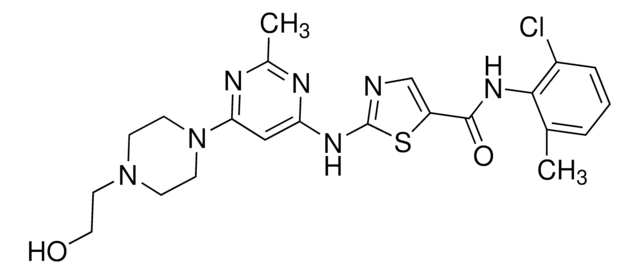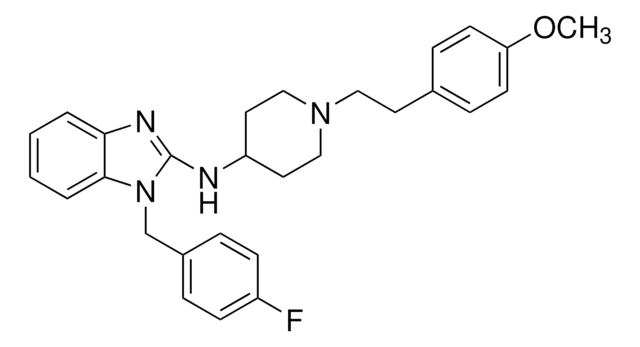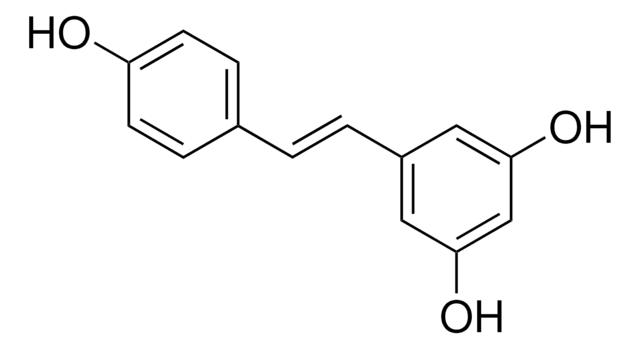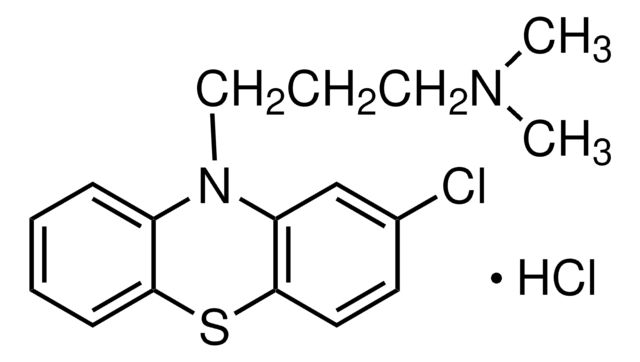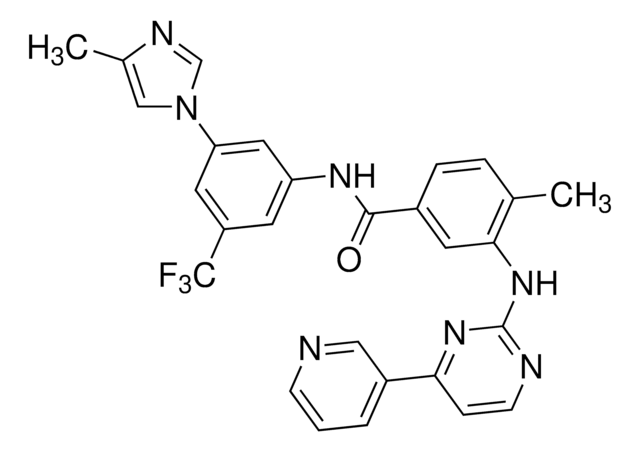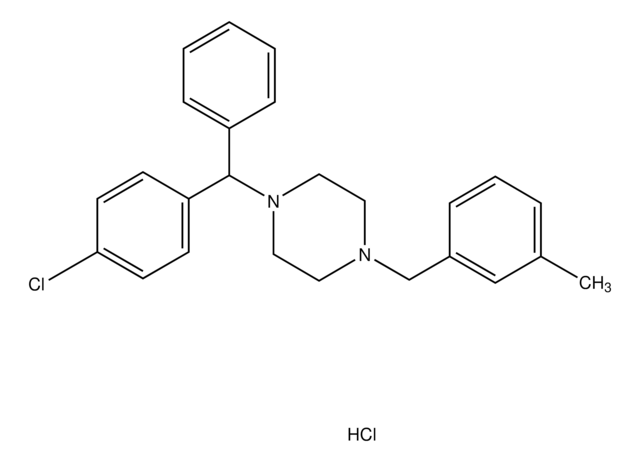SML2169
Diphenidol hydrochloride
≥98% (HPLC)
Synonym(s):
α,α-Diphenyl-1-piperidinebutanol hydrochloride, Diphenyl(3-(1-piperidyl)propyl)carbinol hydrochloride, 1,1-Diphenyl-4-piperidino-1-butanol, Difenidol
About This Item
Recommended Products
Assay
≥98% (HPLC)
form
powder
storage condition
desiccated
color
white to beige
solubility
H2O: 2 mg/mL, clear (warmed)
storage temp.
2-8°C
SMILES string
Cl.OC(CCCN1CCCCC1)(c2ccccc2)c3ccccc3
InChI
1S/C21H27NO.ClH/c23-21(19-11-4-1-5-12-19,20-13-6-2-7-14-20)15-10-18-22-16-8-3-9-17-22;/h1-2,4-7,11-14,23H,3,8-10,15-18H2;1H
InChI key
AVZIYZHXZAYGJS-UHFFFAOYSA-N
Looking for similar products? Visit Product Comparison Guide
Biochem/physiol Actions
Signal Word
Warning
Hazard Statements
Precautionary Statements
Hazard Classifications
Acute Tox. 4 Oral
Storage Class Code
11 - Combustible Solids
WGK
WGK 3
Flash Point(F)
Not applicable
Flash Point(C)
Not applicable
Choose from one of the most recent versions:
Certificates of Analysis (COA)
It looks like we've run into a problem, but you can still download Certificates of Analysis from our Documents section.
If you need assistance, please contact Customer Support.
Already Own This Product?
Find documentation for the products that you have recently purchased in the Document Library.
Our team of scientists has experience in all areas of research including Life Science, Material Science, Chemical Synthesis, Chromatography, Analytical and many others.
Contact Technical Service
